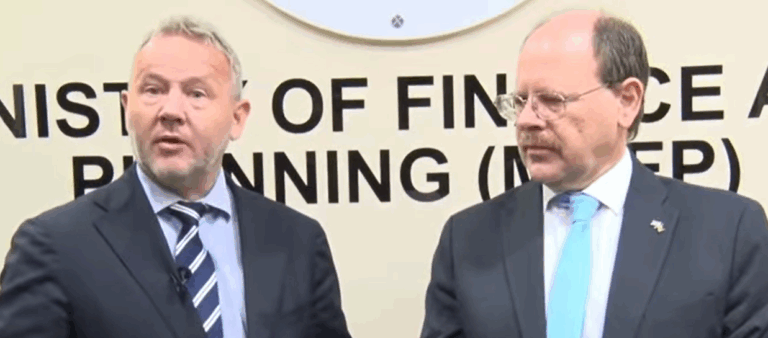The United Kingdom and Norway warned Tuesday that limited progress from South Sudan’s 2018 peace agreement has been reversed, citing a political crisis, the collapse of a ceasefire, and the detention of opposition figures, raising the risk of a return to full-scale civil war.
The warning was delivered in a joint statement by British Ambassador David Ashly during an extraordinary meeting of the Reconstituted Joint Monitoring and Evaluation Commission (RJMEC), the body overseeing the peace process.
“It is with deep regret that now, seven months further on, even the limited progress that had been made has been reversed,” Ashly said. “Instead, we are witnessing repeated and consistent breaches of the peace agreement.”
The diplomats pointed to a critical breakdown in the political process, emphasizing that the legitimacy of South Sudan’s transitional government is derived from the 2018 deal. They stated that “unilateral dismissals or detentions of political opponents without consulting partners to the agreement undermines peace and risks further conflict.”
The statement directly addressed the status of suspended First Vice President Riek Machar, the leader of the main opposition party SPLM-IO, whose position is stipulated in the peace deal. Machar was detained in March, suspended from his role, and is now facing proceedings in a special court in Juba over accusations he had a role in violence in Nasir in March 2025.
“He and his party are a party to the agreement and cannot be excluded if peace is to be achieved,” Ashly said, calling for renewed dialogue at the presidency level that includes Machar.
The two European nations also declared that the permanent nationwide ceasefire has effectively collapsed. They noted that the two main signatory parties, the government’s SPLM-IG and Machar’s SPLM-IO, “are engaged in regular armed clashes in at least four states and are publicly referring to each other as enemies.”
Ashly stated this resurgent conflict has “already cost thousands of lives and displaced hundreds of thousands of people,” and he urged that it “must stop now if South Sudan is to avoid renewed civil war.”
The ambassadors appealed to all parties to heed calls for peace from civil society, church leaders, regional bodies, and the wider international community. They also delivered a warning regarding economic governance, stating that their continued support for a key financial oversight committee is dependent on South Sudan demonstrating transparent and effective use of its own resources to address the needs of its people.
“Enough is enough,” Ashly concluded. “No one wants more war, no one wants yet another extension of the transition, but to avoid both will require urgent dialogue, compromise and responsible leadership.”




